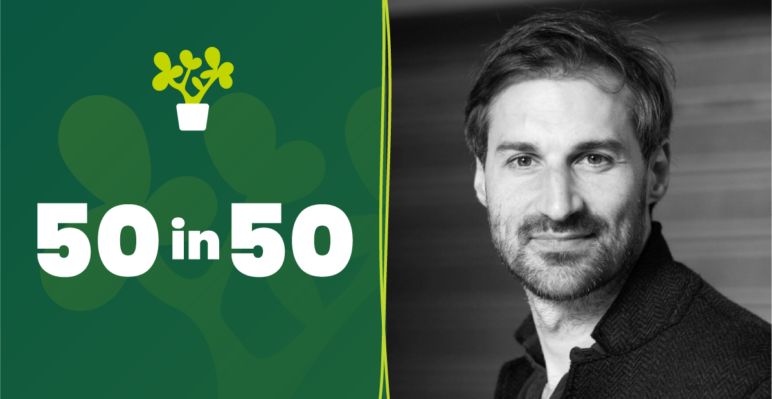David Lebor

It was great to talk to David Lebor about his experiences as an entrepreneur. A lifelong linguist, David has founded Zinguist, a company transforming the way language is learned. Delivered via an online programme, app, and native speaker interactions, Zinguist makes language learning fun, intuitive and strategic. Building on 12 years of research into advanced listening and memory techniques.
What purchase of £100 or less has most positively impacted your life in the last six months (or in recent memory)? (Brand and model, where you found it?)
Turmeric (the root).
Not only is it a delicious addition to tea (especially if offset with minimal honey), but is a valuable anti-inflammatory. Stress is hard to avoid, and any addition to health makes a tough ride more sustainable.
How has a failure, or apparent failure, set you up for later success? Do you have a “favourite failure” of yours?
We fail many times a day, but we succeed more often. Larger failures help give you perspective about what’s important, increase your flexibility and help you adapt.
My favourite failure was to fail to persuade the German government to offer us the flexibility to take refugees around in groups to help them combine language acquisition and rapid integration. It led to success with a demanding client base (busy professionals), where lots of small failures (and Covid) have shaped a much improved, mainly online, product (which is also now better for refugees).
What is an unusual habit or an absurd thing that you love?
I’ve become a wild swimmer, and swim in the lakes around Berlin even in the winter. It started with dipping in the cold water (including smashing holes in the ice), then I saw a man swim 200m in 4 degree water and thought I could also try that.
It’s the most energising, relaxing, empowering and freeing activity I’ve come across, and I’m convinced of the health benefits.
What advice would you give to a smart, driven student about to enter the “real world”? What advice should they ignore?”
The short answer: travel, try things out, be very sociable and work hard.
The longer answer involves two sides that come together: I really liked reading Paul Graham’s advice to younger people. Despite being a hub of start-up wisdom, he essentially advises avoiding starting a business until you’ve been doing something you’ve become unusually developed at, and then use that experience to know what clients need (because you are also one).
If you just do what you love for long enough, this may well fall into place. In my case (as many of us do), I love people, travel and cultural breadth, so I started learning lots of languages, and stumbled across incrementally more effective ways to learn. But it took me a longer time to realise that the gap between what you found best worked for you (your product ‘idea’), and what people will be willing to try (a successful product) is only narrowed through patiently listening to a lot of people over time, and adapting both the product and how you communicate about it.
What frustrates you the most about your industry and the way companies are run in it?
The language industry is essentially a Victorian classroom either still stuck in a Victorian classroom, or conveniently transposed into a mobile Victorian classroom.
Everyone accepts that immersion in the country is the best way. Yet we still accept that outside that country (and even in that country!) the way to learn is to box yourself in with only one native speaker to 25 people and read before you can speak!
In the last five years, what have you become better at saying no to (distractions, invitations, etc.)? What new realisations and/or approaches helped? Any other tips?
Nightclubbing and similar. It doesn’t quite fit the consistent energy and energetic focus required for running a business. When I have energy in my free time, I either like to talk to people or to be in nature.
What does leadership mean to you?
Leaders must have a plan, formed from a clear vision, shaped into plans of action by listening to the team and guiding their thinking.
Success in leadership involves empowering others, building trust and trusting (often through recognising your limitations), staying strong , and exemplifying the values you would like to see in the community you are learning from and guiding.
If you had a forum to speak to 50 leaders, what question would you pose to them, to get them thinking about and being better leaders?
If I were in a forum of 50 leaders, I’d ask them what they thought about leadership and reflect back the aspects that resonated most strongly in the room, and most strongly with me.
Check out https://www.zinguist.com/ to learn more.
